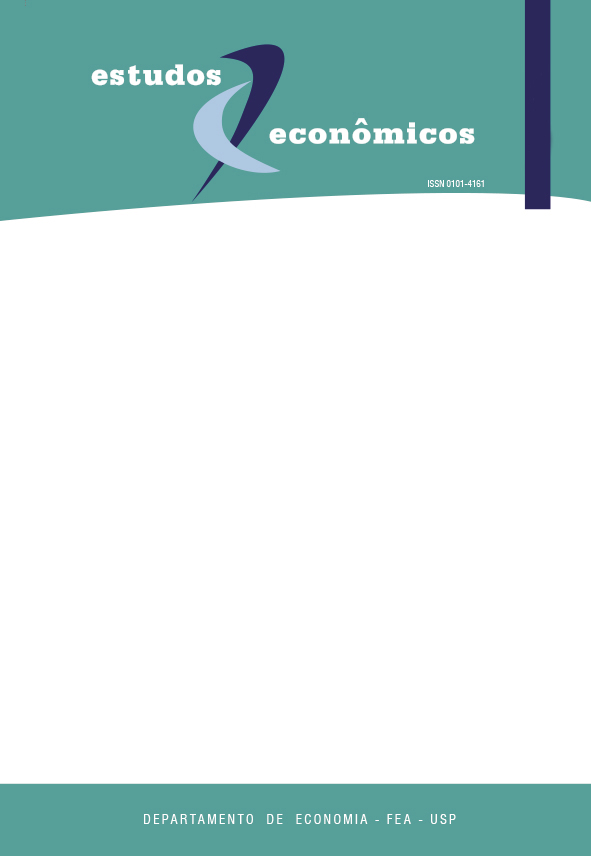Manager's effort and endogenous economic discrimination
DOI:
https://doi.org/10.1590/S0101-41612004000300001Keywords:
manager's effort, wage differential, economic discriminationAbstract
Assume a labor supply consisting of two types of workers, 1 and 2. Both workers are equally productive and exhibit supply functions with the same elasticity. We consider a firm (entrepreneur or shareholders) that is competitive in the output market and monopsonistic in input markets. The firm uses the services of a manager who has a high human capital and whose wage is given by the market. It is supposed that the manager does not like to work with one type of worker, say type 1. If we allow the manager's effort to be an additional input without any extra (in addition to his salary) cost for the firm, then the firm's pricing decision will be different for both workers. That is, there will be a wage differential and therefore endogenous economic discrimination2 in the labor markets.Downloads
References
AKERLOF, G. A.; YELLEN, J. L. Introduction. In: Efficiency wage models of the labor markets. Cambridge: Cambridge University Press, 1986, p. 1-21.
ARROW, Kenneth. The theory of the discrimination. In: ASHENFELTER, O. A.; REES, A. (eds.), Discrimination in labor markets.
Princeton, N. J.: Princeton University Press, 1973, p. 3-33.
BECKER, G. S. The economics of discrimination. Second Edition. University of Chicago Press, 1971.
BLACK, Dan A. Discrimination in an equilibrium search model'. Journal of Labor Economics, v. 13, n. 2, p. 309-334, 1995.
FARIA, J. R. The economics of witchcraft and the big eye effect. Kyklos, v. 51, fasc.4, p. 537-546, 1998.
FARIA, J. R. Supervision and effort in an intertemporal efficiency wage model: The role of the Solow condition. Economics Letters, 67, p. 93-98, 2000.
FRIJTERS, P. Discrimination and job uncertainty. Journal of Economic Behaviour and Organization, 36, p. 433-446, 1998.
KRUEGER, Alan B.; SUMMERS, Lawrence H. Efficiency wages and the inter-industry wage structure. Econometrica, v. 56, n. 2, p. 259-293, March 1988.
PHELPS, Edmund S. The statistical theory of racism and sexism. American Economic Review, 62, p. 659-661, 1972.
SHAPIRO, Carl; STIGLITZ, Joshep E. Equilibrium unemployment as a worker discipline device. American Economic Review, v. 74, n. 3, p. 433-44, June 1984.
SOLOW, R. M. Another possible source of wage stickness. Journal of Macroeconomics, 1, p. 79-82, 1979.
Downloads
Published
Issue
Section
License
Copyright (c) 2004 Jaime Orrillo, Paulo R. A. Loureiro

This work is licensed under a Creative Commons Attribution-NonCommercial 4.0 International License.
By submitting an article, the author authorizes its publication and attests that it has not been submitted to any other journal. The original article is considered final. Articles selected for publication are proofread for grammatical and orthographic errors. The journal does not pay rights for published articles. The Institute of Economic Research from the School of Economics, Business and Accounting of the University of São Paulo (Instituto de Pesquisas Econômicas da Faculdade de Economia, Administração e Contabilidade da Universidade de São Paulo) owns the journal's copyright.




